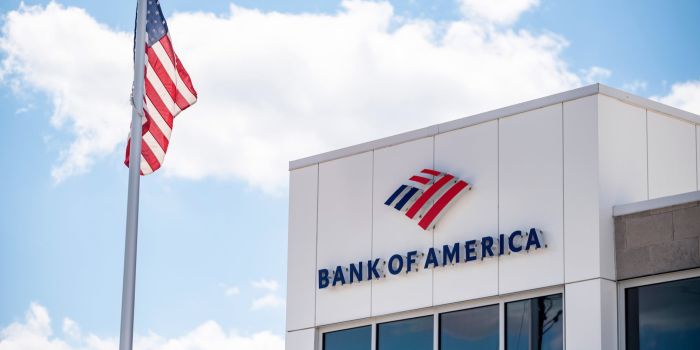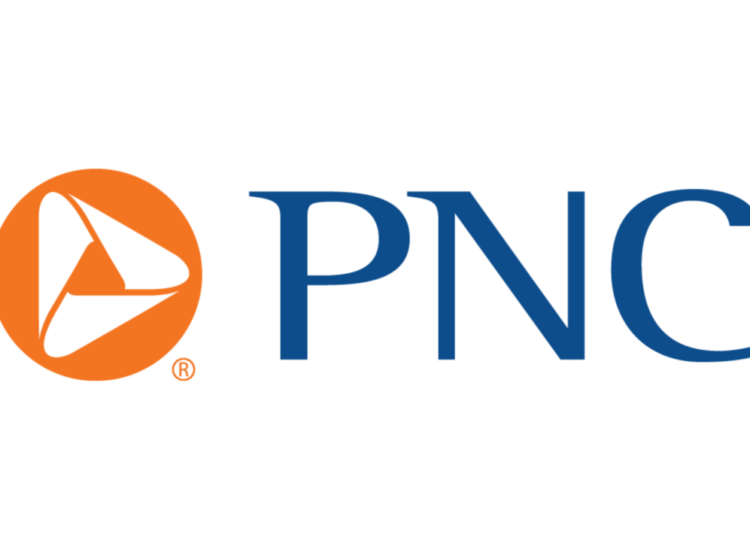Imagine a small bakery struggling to keep up with loan payments while simultaneously trying to expand its product line. A business consolidation loan could offer a lifeline, combining existing debts into a single, manageable payment. This freed-up cash flow could then be reinvested in marketing, equipment upgrades, or even hiring additional staff, ultimately driving growth and profitability.
Toc
In today’s competitive landscape, small business owners often find themselves juggling multiple loans, each with its own interest rate and repayment schedule. This financial juggling act can quickly become overwhelming, diverting precious time and resources away from core operations. A business consolidation loan offers a streamlined solution, allowing entrepreneurs to combine their various debts into a single loan, potentially lowering interest payments and improving cash flow.
This article will guide small business owners through the process of understanding and utilizing business consolidation loans. We’ll explore the benefits of consolidating debt, different types of loans available, and how to prepare for a successful application. We’ll also discuss the importance of maintaining financial health beyond consolidation.
Understanding the Benefits of Business Consolidation Loans

When you choose a business consolidation loan, you’re not just simplifying your payments; you’re taking a strategic step towards enhancing your overall financial health. Let’s delve into the key benefits of this approach:
Streamlined Cash Flow Management
Streamlined cash flow management allows businesses to allocate resources more strategically. For example, a bakery might be able to invest in a new oven or expand its delivery fleet, knowing that loan payments are consolidated and predictable. This can lead to increased efficiency and potentially higher revenue. Managing multiple loan payments each month can feel like a logistical nightmare. By consolidating your business debts into one loan, you simplify budgeting and forecasting. This streamlined approach can help you maintain a clearer understanding of your cash flow, ultimately avoiding late payments and the penalties that come with them.
Potential for Lower Interest Rates
While the potential for lower interest rates is appealing, it’s crucial to compare offers carefully. Different lenders may have varying interest rates and terms, even for similar loan amounts. Businesses should thoroughly research and compare options before committing to a consolidation loan. For instance, a small business might find a lower interest rate from an online lender compared to a traditional bank. One of the standout advantages of a business debt consolidation loan is the potential to secure a lower interest rate compared to your existing debts. Depending on your creditworthiness and the current market conditions, you might significantly reduce the interest you pay each month. This reduction can lead to substantial long-term savings, freeing up funds to reinvest in your business.
Improved Credit Profile
As your credit profile strengthens, you’ll gain access to more favorable financing options in the future, allowing for potentially lower interest rates and more favorable loan terms for future expansion or investments. Consistently making on-time payments on a consolidated loan can positively impact your business credit score. As your credit profile strengthens, you’ll gain access to more favorable financing options in the future. This enhancement can be crucial for businesses looking to expand or invest in new opportunities.
Reduced Financial Stress
The pressure of juggling multiple debts can take a toll on your mental well-being, affecting your ability to focus on the core aspects of your business. By consolidating your debts, you can alleviate this stress and devote more time and energy to strategic decision-making and driving your company forward.
Selecting the Right Business Consolidation Loan

Choosing the right business consolidation loan is essential for aligning with your financial needs and goals. Here are some common types of consolidation loans to consider:
Term Loans
Term loans, offered by both traditional banks and alternative lenders, are a popular choice for business debt consolidation. These loans provide a lump-sum payment that can be used to pay off existing debts, featuring fixed interest rates and predictable repayment schedules. This structure is ideal for businesses with stable cash flow, allowing for manageable monthly payments.
SBA Loans
Small Business Administration (SBA) loans, particularly the SBA 7(a) program, present an excellent option for business consolidation. These government-backed loans typically offer lower interest rates and longer repayment terms compared to traditional bank loans. This makes them a compelling choice for small businesses looking to consolidate their debts.
Business Lines of Credit
A business line of credit can also serve as a tool for consolidating debts. Unlike a traditional term loan, a line of credit provides access to a pool of funds that can be drawn from as needed. This flexibility allows businesses to manage cash flow more effectively, especially during fluctuating revenue periods.
Invoice Financing
For businesses heavily reliant on outstanding invoices, invoice financing can be a valuable method for consolidating debt. This type of financing allows you to convert unpaid invoices into immediate cash flow, which can then be used to pay off existing obligations. This can be particularly beneficial for businesses that face delayed payments from clients.
When evaluating your options, consider factors such as interest rates, fees, repayment terms, and your overall financial situation. Consulting with a financial advisor or lender can provide personalized guidance and help you navigate the business loan consolidation process effectively.
Preparing for Your Business Consolidation Loan Application

Before applying for a business consolidation loan, it’s crucial to prepare your financial documentation thoroughly and ensure you meet the lender’s eligibility requirements. Taking the time to do this can make the process smoother and increase your chances of approval. Here’s an expanded step-by-step guide to help you get started:
Assess Your Current Debt
First, take stock of all your current debts, including credit cards, loans, and any lines of credit, along with their respective interest rates. This comprehensive overview will help you determine the total amount you need to consolidate and provide a benchmark for evaluating potential loan offers. Additionally, understanding your debt situation can help you identify which debts are costing you the most and should be prioritized in the consolidation process.
Review Your Credit Score
Lenders consider your credit score carefully when determining the terms of your loan, including interest rates and repayment plans. Reviewing your credit report is an essential step; it can help you identify any errors or areas for improvement that could negatively impact your loan application. If your score is lower than desired, consider taking steps to improve it before applying, such as paying down existing debt or disputing inaccuracies on your credit report.
Gather Financial Documentation
Lenders will typically require a range of financial documentation to make an informed decision. This can include tax returns from the past few years, recent bank statements, profit and loss statements, and other relevant financial records that showcase your business’s financial health. It’s beneficial to organize these documents in advance to streamline the application process and demonstrate your preparedness and professionalism. Additionally, having accurate and up-to-date information can help lenders assess your ability to repay the loan.
Compare Loan Offers
Once you’ve selected the type of consolidation loan that best suits your needs and financial situation, take the time to compare offers from multiple lenders. This will allow you to find the most favorable terms, including interest rates, repayment periods, and any associated fees. Don’t hesitate to negotiate with lenders or ask for clarification on any unclear terms, as many are willing to work with you to find a solution that fits your business’s needs.
Submit Your Application
After selecting a lender, submit your loan application along with all required documentation in a timely manner. Be prepared to answer any additional questions or provide further information as needed during the underwriting process. Keeping open lines of communication with your lender can help ensure that your application moves forward smoothly and can also help you understand the loan decision timeline.
By following these detailed steps, you’ll be better equipped to navigate the business consolidation loan process and increase your chances of securing the financing you need to improve your business operations.
Maintaining Financial Health Beyond Consolidation

Securing a business consolidation loan is just the first step in managing your company’s financial well-being. To ensure long-term success, it’s essential to develop and implement effective financial management strategies. Here are some key considerations:
Budgeting and Cash Flow Management
Creating a detailed budget that accounts for your monthly expenses, including your new consolidated loan payment, is critical for financial stability. Begin by listing all of your fixed and variable expenses, and be sure to factor in any seasonal costs that may arise. Regularly review and adjust your budget to maintain healthy cash flow and ensure timely payments. It’s also beneficial to set aside a small buffer for unexpected expenses, which can help you avoid disruptions in your financial plan.
Building Business Credit
Consistent, on-time payments on your consolidated loan can significantly help build and strengthen your business credit profile. A stronger credit profile not only enhances your reputation among lenders but also opens doors to more advantageous financing options. With a solid credit history, your business will be in a better position to negotiate lower interest rates and more favorable terms, enabling you to confidently pursue expansion or investment opportunities that can lead to future growth.
Developing a Financial Plan
Look beyond your immediate debt consolidation needs and develop a comprehensive financial plan for your business that addresses both short-term and long-term goals. This may include strategies for managing future financing needs, investing in new equipment or technology that can improve efficiency, or expanding into new markets to diversify your revenue streams. Consider consulting with a financial advisor to create a tailored plan that aligns with your business’s vision and objectives.
Remember, a business loan consolidation is not a cure-all for financial challenges. It’s important to address the underlying issues that led to your debt accumulation, whether that be cash flow mismanagement, lack of market research, or unforeseen economic conditions. Implementing sound financial management practices is essential for ensuring the long-term health and growth of your business. This may involve regular financial reviews, seeking out educational resources, and fostering a culture of financial awareness within your team.
Frequently Asked Questions

Q: What is the difference between a business consolidation loan and refinancing?
A: While both involve taking out a new loan, consolidation combines multiple debts into one, whereas refinancing typically focuses on adjusting the terms or interest rate of a single loan.
Q: How can I qualify for a business consolidation loan?
A: Lenders generally assess your credit score, business financials, and debt-to-income ratio. A good credit score and strong financial history will improve your chances of approval.
Q: What are the potential risks of consolidating business debt?
A: The main risks include higher interest rates, additional fees, and a longer repayment term. It’s crucial to compare offers carefully and understand the terms before committing to a business debt consolidation loan.
Conclusion
Business consolidation loans can be a valuable tool for small business owners seeking to simplify their debt management, improve cash flow, and unlock growth opportunities. By understanding the benefits, selecting the right loan type, and preparing for a successful application, small businesses can leverage consolidation to achieve financial stability and long-term success. Remember to develop sound financial management practices to maintain financial health beyond consolidation. With careful planning and execution, a business consolidation loan can be the first step towards a brighter future for your business. So, stay informed, stay proactive, and continue to evaluate your financial practices regularly to keep your business on track for success.
References
- Business Debt Consolidation: What It Is & How To Do It (2021). Merchant Maverick. Retrieved from https://www.merchantmaverick.com/business-debt-consolidation-loans/
- What Is a Business Debt Consolidation Loan? (2020). BlueVine. Retrieved from https://www.bluevine.com/resources/what-is-a-business-debt-consolidation-loan/
- Consolidating Your Business Loans: Pros and Cons (2021). Fundera. Retrieved from https://www.fundera.com/business-loans/guides/consolidating
- How to Get a Small Business Debt Consolidation Loan (2019). Entrepreneur. Retrieved from https://www.entrepreneur.com/article/330974
- The Benefits of a Business Debt Consolidation Loan (2020). ForwardLine. Retrieved from https://www.forwardline.com/blog/the-benefits-of-a-business-debt-consolidation-loan/ sss
- Business Debt Consolidation Loans Explained (2019). National Funding. Retrieved from https://www.nationalfunding.com/blog/business-debt-consolidation-loans-explained/
- Small Business Debt Consolidation: What You Need to Know (2020). Nav. Retrieved from https://www.nav.com/resource/small-business-debt-consolidation/
- How to Improve Your Credit Score for Small Business Loans (2021). Forbes Advisor. Retrieved from https://www.forbes.com/advisor/business-credit/how-to-improve-credit-score-small-business-loans/ sss
- How to Create a Financial Plan for Your Small Business (2020). Bank of America. Retrieved from https://www.bankofamerica.com/smallbusiness/resources/how-to-create-a-financial-plan-for-your-small-business/






